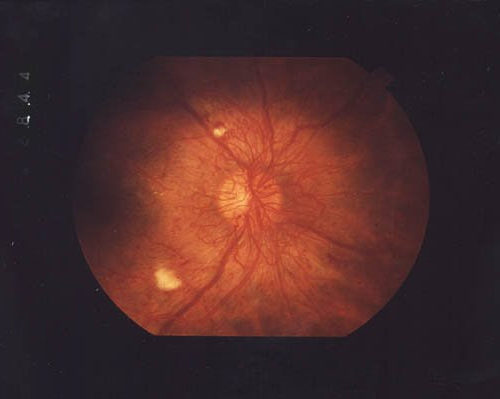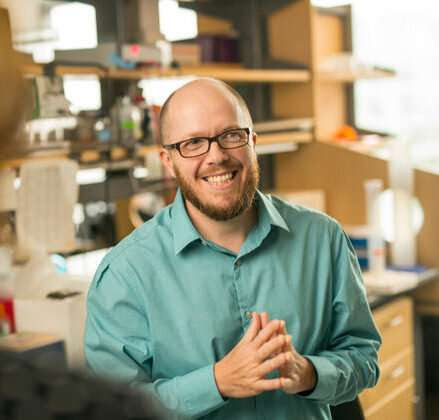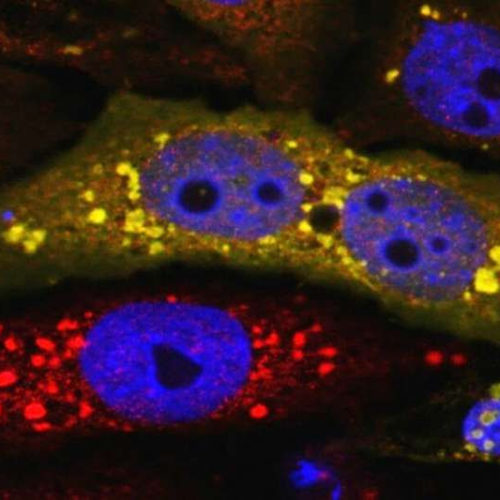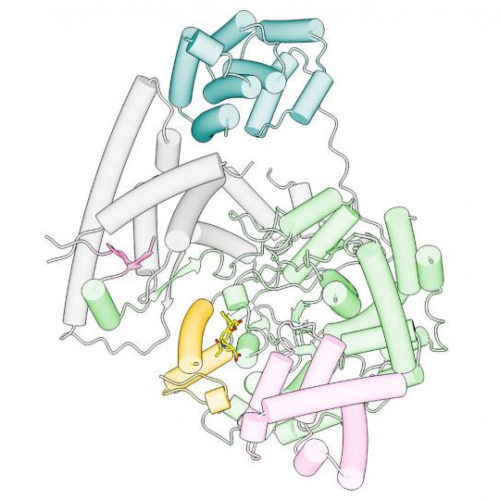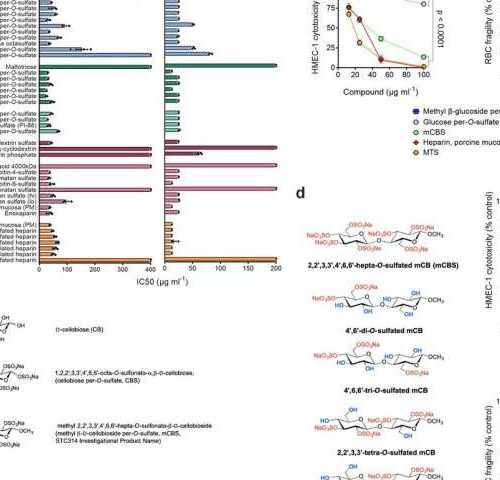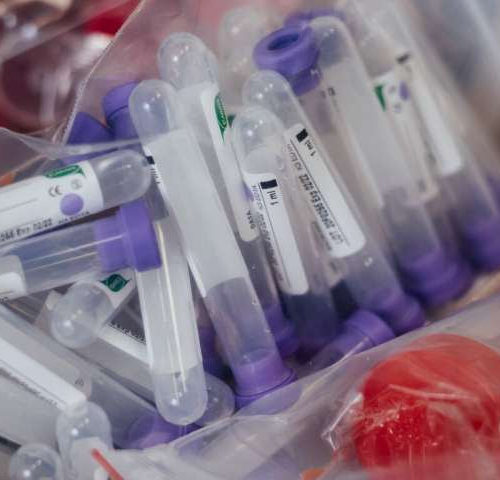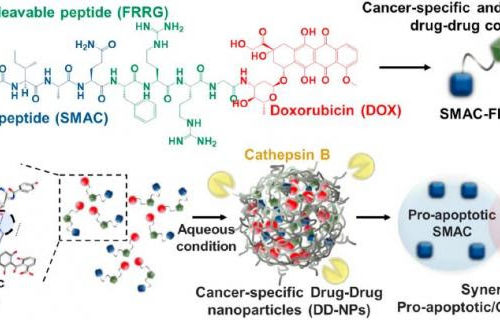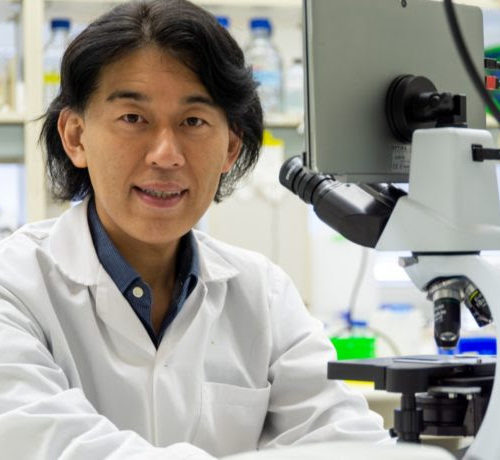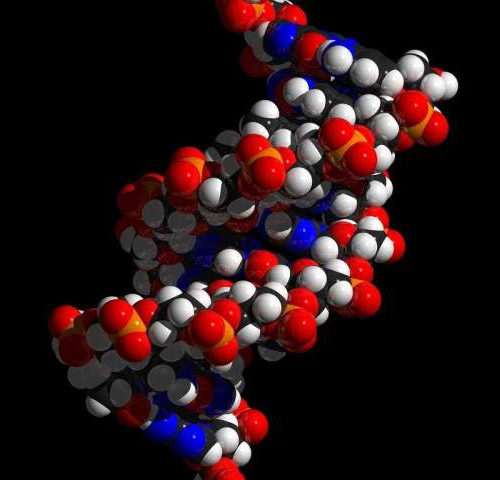With a San Francisco biotech company, an UdeM eye expert develops a treatment that could potentially treat patients who suffer from this degenerative disease of the retina. Potentially effective treatment for diabetic retinopathy, a disease that swells and scars the retina, has been developed by an Université de Montréal scientist and investigator at Maisonneuve-Rosemont Hospital Research Centre...
Tag: <span>new drug</span>
Discovery shows how to treat heart attacks—new drug development underway
by Marissa Shapiro, Vanderbilt University David Merryman. Credit: Vanderbilt University Vanderbilt researchers have identified the protein receptor in specialized heart cells that, when removed, preserves cardiac function after a heart attack. This discovery has significant implications for survival after a heart attack, with a promising therapeutic development now underway at the Warren Center for Neuroscience Drug Discovery. The...
A new drug target for liver cancer
by National University of Singapore The insoluble form of p62 protein is abundant in liver cancer cells where it causes hyper-activation of the cancer-promoting Nrf2 signalling pathway. The image shows the recruitment of the MOAP-1 protein at the insoluble p62 protein aggregates in the liver cancer cells. The MOAP‐1 protein (yellow/orange) is co-located with the p62...
New drug combination shows promise as powerful treatment for AML
SANFORD BURNHAM PREBYS MEDICAL DISCOVERY INSTITUTE IMAGE: PETER ADAMS, PH.D., PROFESSOR IN THE TUMOR INITIATION AND MAINTENANCE PROGRAM AT SANFORD BURNHAM PREBYS’ NCI-DESIGNATED CANCER CENTER. CREDIT: SANFORD BURNHAM PREBYS MEDICAL DISCOVERY INSTITUTE LA JOLLA, CALIF. – Jan 20, 2020 – Scientists have identified two drugs that are potent against acute myeloid leukemia (AML) when combined,...
New drug inhibits the growth of cancer cells
MAX-PLANCK-GESELLSCHAFT IMAGE: CARTOON REPRESENTATION OF THE POLRMT-INHIBITOR COMPLEX. CREDIT: HAUKE S. HILLEN A newly developed compound starves cancer cells by attacking their “power plants” – the so-called mitochondria. The new compound prevents the genetic information within mitochondria from being read. Researchers from the Max Planck Institute for Biology of Ageing in Cologne, the Karolinska Institute...
New drug to combat global killer sepsis
by Rachel Curtis, Australian National University Fig. 1: Polyanions inhibit histone-mediated endothelial cell cytotoxicity and RBC fragility with minimal structural requirements for the activity identified. A promising new drug to combat sepsis has been developed by researchers at The Australian National University (ANU), potentially saving millions of lives each year. ANU Professor Christopher Parish and...
New drug research for prostate cancer could also fight COVID-19
by Queensland University of Technology Dr. Lisa Philp and Professor Colleen Nelson, from the QUT Faculty of Health’s School of Biomedical Science, are developing drugs to fight advanced prostate cancer that could also prevent and or treat acute respiratory distress syndrome (ARDS). They and their research team, based at the Translational Research Institute, realized their research...
New drug that can prevent the drug resistance and adverse effects
NATIONAL RESEARCH COUNCIL OF SCIENCE & TECHNOLOGY IMAGE: THIS CANCER CELL SPECIFIC ANTI-CANCER DRUG PRECURSOR (SMAC-FRG-DOX) FORMED ITSELF BY HYDROPHOBIC INTERACTION WITHIN THE MOLECULE WITHOUT THE USE OF ADDITIONAL POLYMERS AND DRUG CARRIERS. Although the diverse treatment methods developed to effectively treat cancer, chemotherapy using anticancer agents has been proven especially effective in many clinical applications. Above...
FDA approves new drug to treat common form of muscular dystrophy
Created using synthetic DNA, viltolarsen is an excellent example of precision medicine. A University of Alberta researcher’s past work has led to a new drug being approved for use in the United States to treat patients suffering from Duchenne muscular dystrophy (DMD). The drug, viltolarsen, was approved for use in Japan earlier this year and...
New drug targeting DNA repair shows promise in range of advanced cancers
by Institute of Cancer Research A new precision drug which stops cancer from repairing its DNA has shown promise in an early-stage clinical trial—highlighting the potential of a new class of drugs known as ATR inhibitors. The drug candidate, tested in humans for the first time, was shown to be well tolerated and stopped the growth of...

